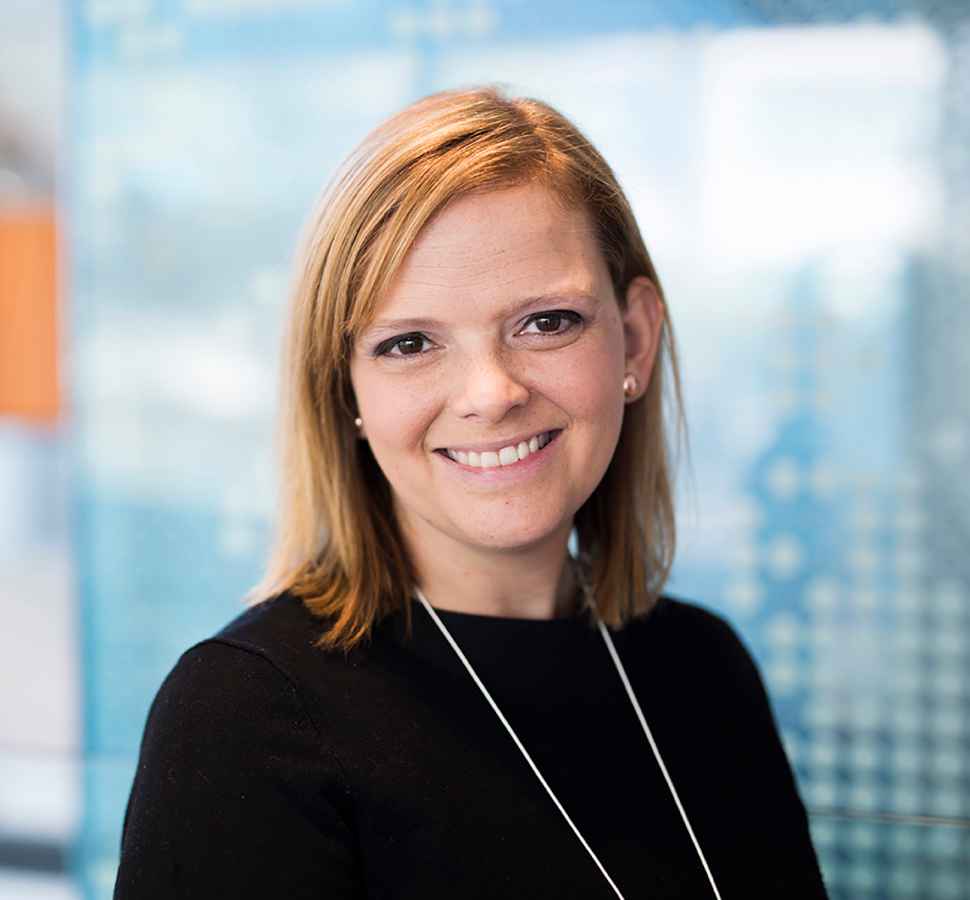Welcome
to Fearless
Conversations
In 2021 Flinders University delivered a huge 13 week series of Fearless Conversations. Bringing together industry leaders and our researchers, the series fearlessly discussed the challenges that face our work and the opportunities in South Australia.
The conversation inspired, informed and advocated for our state in a fearless way - encouraging us to work together to ensure we emerge stronger.
This year Fearless Conversations is once again tackling a broad range of topics, focussing on one each month starting in February.
To be part of the 2022 conversations, and have your say on topics and potential speakers, join our new Fearless network.
Be part of the conversation.
#FearlessConversations
Cancer Care
Do cancer survivors get enough care?
A fearless discussion on the issues surrounding the needs of cancer survivors.
We explore how health services can better aid survivors of a disease that will directly affect one in two Australians by the age of 85. We also answer the big question – do cancer survivors get enough care?
Our research leaders and cancer care experts come together to discuss:
- Why is shifting follow-up care away from acute hospital settings and towards settings with local health professionals so important?
- What is being done to better support patients during and after cancer treatment to ensure their life is as fulfilling as it was before diagnosis?
- What are the psychological impacts of cancer treatment?
Facilitated by broadcaster and ambassador for Head & Neck Cancer Australia Julie McCrossin AM, join this Fearless Conversation bringing together Professor Raymond Chan, Director and Professor of Cancer Nursing at the Caring Futures Institute, Flinders’ Professor Bogda Koczwara, Clinical Psychologist Associate Professor Lisa Beatty and Research Support Officer Vikki Bedford, who is a proud mum to a childhood cancer survivor.
Event MC - Julie McCrossin AM

Julie McCrossin AM has many years’ experience as a broadcaster with ABC Radio National, ABC TV, Network Ten, and as a podcaster and MC. Julie, an ambassador for Head & Neck Cancer Australia, was treated for stage four, HPV-related oropharyngeal cancer (tonsils, tongue and throat) in 2013. She is a member of the advocacy group, Cancer Voices SA and hosts podcast series, The Thing About Cancer and The Thing About Advanced Cancer for Cancer Council NSW.
Thank you to everyone who submitted live questions during this Fearless Conversation. We couldn’t get to all of them so here is a snapshot, answered by our expert panelists.
Q: We all know people affected by cancer. What is the most ‘fearless’ thing we can do to support them? What shouldn’t we do or say?
A: The most fearless thing you can do is ask them what they want. Ask them what matters most to them and those around them. Ask them to help design your next research project, especially if it is an intervention involving their condition. Remember to research WITH them not TO them. Work on getting to know them as a person and not just for what they can do for you.
Q: Is survivorship potentially a confronting topic for patients who are facing life or death and might be afraid to think beyond what is immediately in front of them?
A: It could be confronting, and it can also be a source of hope for these patients and their families. We should be open to what the individual is comfortable with, so we are not putting everyone in the same basket. It would also depend on the chances of survival for the patient. Patients should be fully informed of their condition and all that means, which includes survival. The possibility of what survivorship looks like and how it is managed would likely be the most confronting part.
Q: Do services and outcomes differ between metro and rural/regional care?
A: Yes. Depending on the needs they can vary greatly. For example, radiation treatment is not available in all rural areas so patients must drive hours to a city location for treatment and either find an overnight accommodation or drive home. There is evidence to show this discrepancy can lead to poorer outcomes. See this example published in 2009, Mapping oncology services in regional and rural Australia, Underhill, et al from the Australian Journal of Rural Health.
Q: Being uninsured is a far greater barrier to accessing prostate cancer care than is geographic isolation. They often go hand in hand. Is anyone advocating for public cancer patients currently excluded from care?
A: I am not aware of this concern specifically but am interested in better understanding the details. Connecting with consumer groups is the best way to ensure your concerns are heard and escalated.
Q: What insights does the team have for those who are surviving cancer, but whose outcome is quite guarded. E.g., pancreatic cancer.
A: The more information a patient and their support group have, the better. In the case where your outcome is guarded, you need more information. Many patients end up in this limbo at different points of treatment and survivorship. That is just another reason for having dedicated survivorship centres available to assist in matters specific to survivors.
Q: Ray, in your co-design process with GPs, did you find that GPs felt adequately prepared/educated (e.g., aware of guidelines/evidence) to provide survivorship care? Did they feel they had capacity to help?
A: This depends on the tasks we are asking them to do. In a shared-care model, we are discussing patient needs together with the GPs. The GPs are contributing to the shared-care agenda with their expertise, which may include cardiovascular care, management of diabetes, development of chronic disease management plans, development of mental health treatment plans, etc. The GPs have much to offer, BUT they don’t often know where to start for people who have just finished treatment for cancer, because they don’t have enough information, and are not familiar with what might be some of the specific issues to prioritise. That’s why the nurse-enabled processes and survivorship care plan really provide a guide for the GPs to work with.
Q: How can we get the survivorship model to be implemented between GP/patient and with private hospital/consultants and teams? How can we improve the communication between patient > GP > oncologist?
A: Working together. Just like this Fearless Conversation, we need to work together and advocate with all the stakeholders. Sit down together to find the solutions that fit all parties and then advocate in your state and nationally for this model of care to be supported on all levels financially to be sustainable into the future.
Q: How can we bring survivorship care into the conversation at the beginning of treatment?
A: Education. Education of the medical teams delivering the diagnosis and the cancer centres treating the patients. More importantly there must be the follow-up care available to support survivors into the future, longer than five or even 10 years.
Q: Loving the cross-discipline co-design. But national policy is lagging! How will consumer voices be incorporated into national health policy so that research is funded according to burden of disease?
A: Groups like Cancer Voices SA, Cancer Council and Consumer Health Forum are leading the charge to ensure consumer voices are part of the process. I would encourage you all to join them and use your voice and your experience to help shape the policy.
Q: There is such great survivorship research happening, how do we make sure successful research clinical trials and initiatives are translated into practice for the benefit of more cancer patients?
A: Translation and ongoing funding are key to success. That will happen with more advocating and co-design of the research with consumers. Research needs to be able to be understood in lay terms to be able to be disseminated further.
Q: Are we able to access the ESAS (Edmonton Symptom Assessment System) and problem checklist?
A: ESAS and problem checklist.
Panelists include
Professor Raymond Chan is Director and Professor of Cancer Nursing at the Caring Futures Institute, Flinders University. He holds prestigious titles as NHMRC Investigator Fellow and Matthew Flinders Fellow.
Professor Bogda Koczwara is a senior staff specialist in medical oncology at the Flinders Medical Centre and leads the Survivorship Research Program at the Flinders University Health and Medical Research Institute (FHMRI).
Associate Professor Lisa Beatty is an Associate Professor in Clinical Psychology at Flinders University and a visiting Consulting Clinical Psychologist in Medical Oncology at Flinders Medical Centre.

Vikki Bedford is a Research Support Officer for Consumer Engagement at the Flinders Health and Medical Research Institute. She also serves as Chair of Cancer Voices SA and is a proud mum to a childhood cancer survivor.
Join the Fearless Network
Fearless Conversations is for our entire Flinders community. We want to understand what topics are important to you and what questions you want answered by our fearless panelists. The Fearless Network is made up of a community of like-minded individuals who are passionate about changing lives and the world around them through research and education and conversation.
Becoming a member of the Fearless Network offers a range of benefits:
- Suggest topics for future Fearless Conversations
- Recommend speakers for future Fearless Conversations
- Send your questions in advance for the expert panel or submit them live
- Enjoy first access to register for Fearless Conversations
- Gain first access to in-person invitations to Fearless events and cocktail functions where you can connect with our researchers and other Fearless Network members
- Enjoy discounts on Fearless merchandise
- Receive regular digital updates on Flinders Fearless research and other activities.
Becoming a member of the Fearless Network is your chance to get involved. You can help shape conversations that will fearlessly challenge the current rhetoric and dive deep into the issues we face both locally and globally. Registering for a Fearless Conversations panel discussion will automatically add you to the Fearless Network.
Register
What would you do if you were fearless?
“
Don't be afraid to take intellectual risks. Ask hard questions and challenge yourself. That applies to your research, your educational decisions or even your networking ... Ask informed questions. Don't be afraid to look silly because your ideas are different or seem far-fetched to others
— Associate Professor Jonathan Benjamin.
We support and empower people, giving rise to empathic leaders who look towards an unpredictable future with confidence and optimism.
We are Flinders.
We are Fearless.
![]()
Sturt Rd, Bedford Park
South Australia 5042
South Australia | Northern Territory
Global | Online
CRICOS Provider: 00114A TEQSA Provider ID: PRV12097 TEQSA category: Australian University












